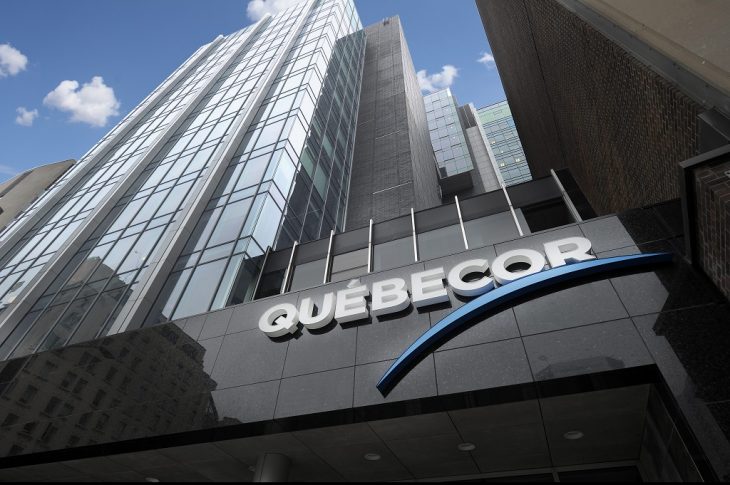
By Ahmad Hathout
Quebecor executives said Thursday that the company is prepared to fight a defensive price battle with its major regional rival to maintain a price advantage they said it needs to grow its market share.
Two quarters ago, the company announced that it would need to make overdue price increases to its internet plans because it was feeling some unnecessary downward pressure on its revenues.
But the company has seen cable revenue gains of just $2.6 million from the fourth to the first quarter, with the price increases fully baked into the latter period. To explain that, Hugues Simard said Thursday the company is still being held back by hyper competitive pricing of its major competitive rival — Bell.
“There are competing forces on that,” Hugues Simard, Quebecor’s chief financial officer, said on a first quarter conference call Thursday about the price increases. “Yes, we are benefiting from our price increases in December, but as you know the market … continues to be very competitive and increasingly competitive.”
Those competing forces include Bell’s internet offers in Quebec, which have drawn the ire of Simard and CEO Pierre Karl Peladeau in consecutive quarters.
On Thursday, Simard expressed bewilderment about an offer he claims was made by Bell in March – 3 Gbps for $55 in Quebec, with the same package at $130 in Toronto.
“I wish I could say that we are seeing more discipline on wireline from Bell, but I can’t,” Simard said, adding the company has taken a reactive position in the market, including time-limited promotions, to maintain a price advantage he said is required to increase its market share beyond the low teens.
In the third quarter last year, Simard was a little less reserved in his remarks. “We did not launch the price war in Quebec. For a few quarters, we didn’t even respond and we lost market share and we lost net adds; we were negative net adds on internet for a few quarters and yes, this quarter we responded more in-kind, but we never launched this war and we still believe this is at the level of maturity of the market in Quebec.
“It is not right, and it is not business,” he added. “It’s very tricky from a business standpoint to do what Bell is doing, because I think it’s hurting the entire business in Quebec, and now that we see that they’re going to Ontario, I think I feel a little bit worried about the wireline business in Ontario and then in the rest of Canada.”
Still, the result this quarter is an industry-leading churn level, Quebecor executives said, but that cannot be independently verified because the company does not publicize that number. Part of the strategy to reduce churn, like every other major player in the industry, is a triple-play bundling strategy of wireless, internet and television.
Earlier this year, for example, its low-cost flanker Fizz launched its all-digital television service in Quebec, which is available to Fizz home internet customers on promotional discount. Last spring, its Freedom subsidiary launched internet and television services in Ontario.
The company lost 3,500 internet customers in the quarter, down from the 6,500 it lost last year. The total base was still up by about eight thousand over the year to 1.73 million.
It added 54,400 new mobile wireless customers, down from 60,200 last year. The total base was up by about 367,000 to roughly 4.2 million.
It lost fewer television customers, at less than 1,000, compared to a loss of 20,000 last year, for a total base by quarter-end of 1.3 million, down by about 42,000 on a year-over-year basis.
And landlines were down by 15,700, compared to 16,400 last year, for a total base of 593,000, down by about 65,000 over the same period.
Quebecor saw lower total revenues, at $1.34 billion, down about $20 million or 1.4 per cent compared to the same period that ended March 31 last year. Telecommunications and media revenues were down slightly to $1.16 billion (by about $20 million) and $164.6 million (by $4 million), respectively, while sports and entertainment revenues were up roughly $3 million to about $50 million.
Net income, however, was up by roughly $17 million to $184.3 million this quarter.


